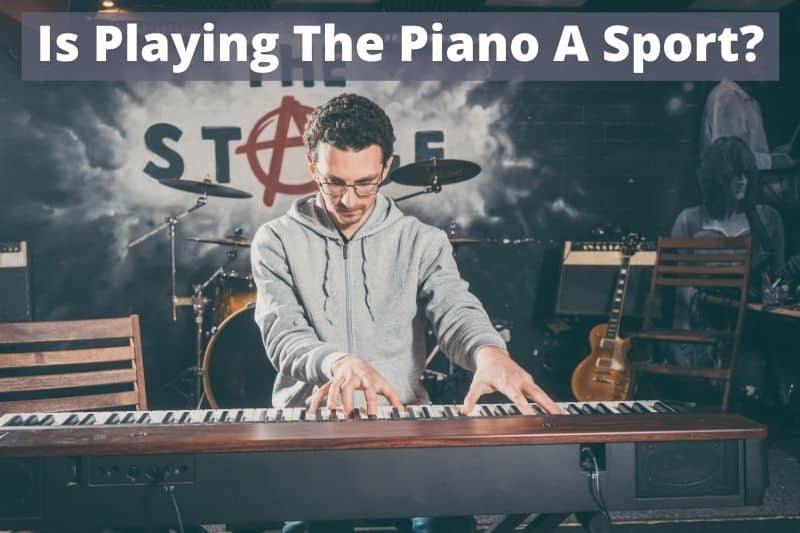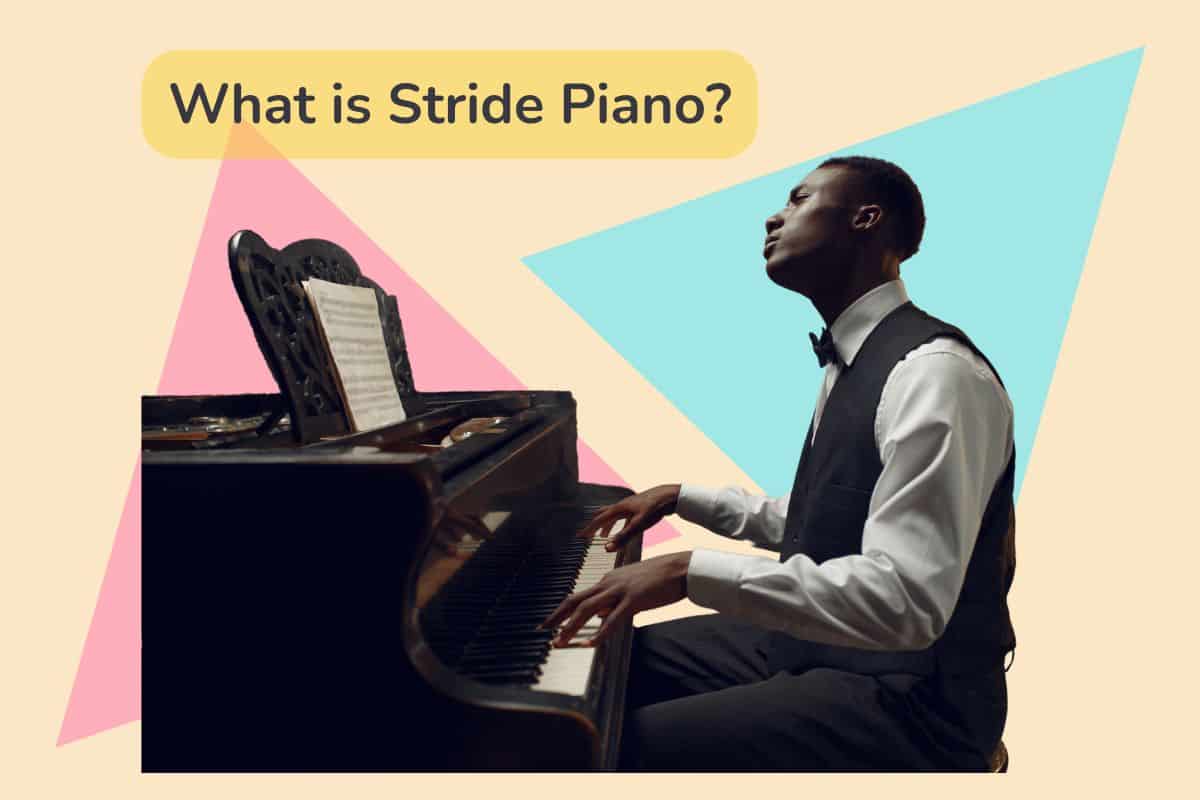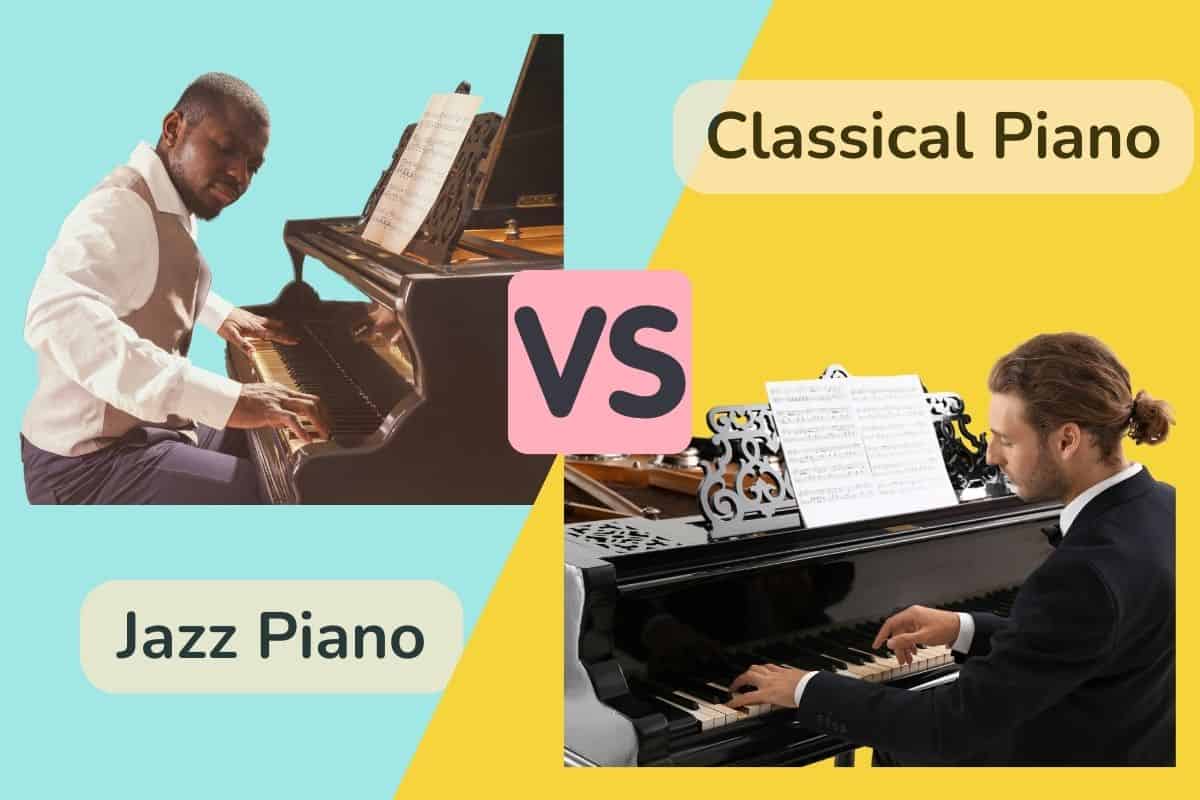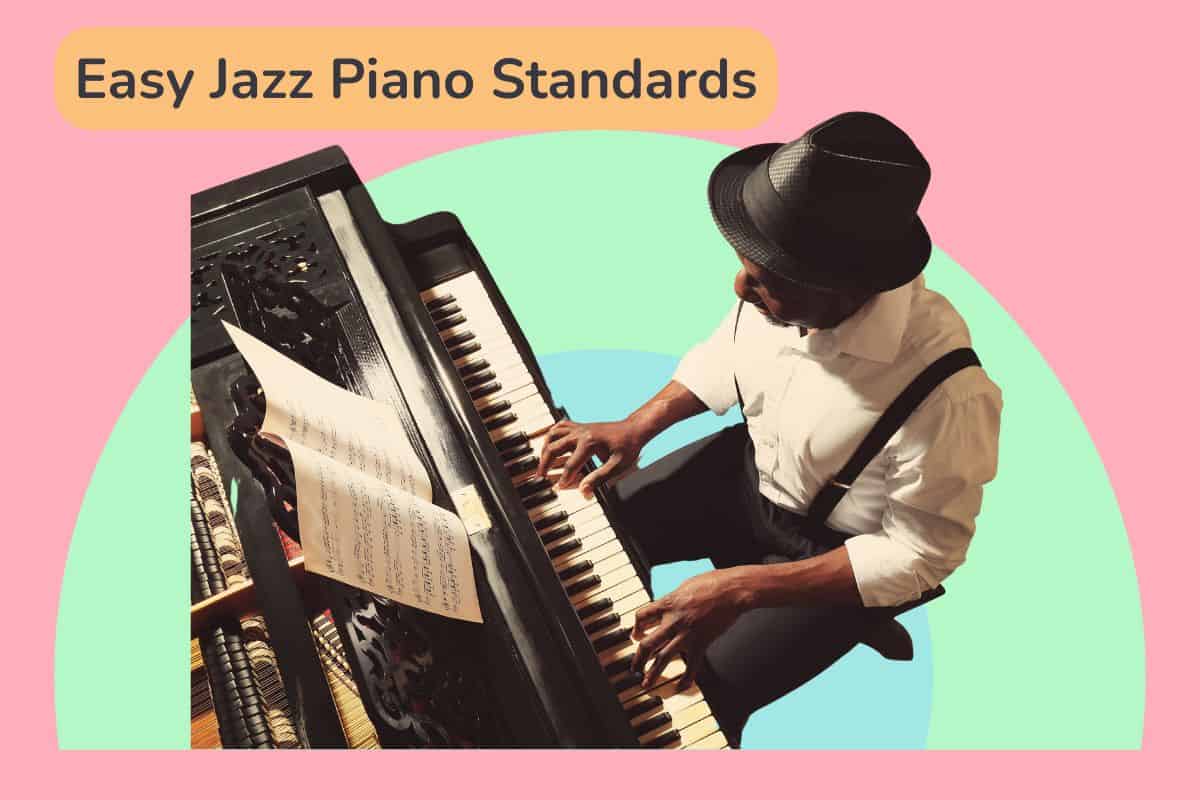Playing the piano can be incredibly strenuous, especially for those who practice the piano for many hours every day. This instrument is surprisingly physical, and long practice sessions can leave the player feeling exhausted. The physical exertion needed to play this instrument well for long periods of time leads many to question whether it could be considered a sport?
Playing the piano is not the same as playing a sport. However, there are many similarities between elite pianists and athletes. Both disciplines require focus, dedication, practice, and hard work. Sport is more objective, and result-based whereas playing the piano requires more depth and emotion.

The piano is one of the most physically involved instruments to play, especially at an advanced level. It can be complicated, is not for the faint of heart, and paying it well takes intensely hard work. Playing sports at an advanced level also requires immense effort and dedication, but can you compare playing the piano and sport in the same light? I’ll use the rest of this article to dig a bit deeper and find out.
What It Means To Play The Piano
Playing this instrument does require incredible physical ability and mental prowess, and it does take many hours of intense practice and hard work to become good at it. Still, it is technically not considered a sport.
There are some similarities between playing the piano and playing a sport, and elite athletes and elite pianists share many of the same qualities and attributes.
The act of playing the piano does take intense practice and great skill, but it also requires abilities and has aspects that are not necessary or present in sport.
The elite piano player must be talented, hard-working, dedicated, willing to make sacrifices for their discipline and practice many hours. The same is expected of elite athletes, but there is more depth to the music that is not present in sport.
Sports players and sports fans are passionate about their sport of choice. Still, advanced piano players develop a deep connection to their instrument, the music they play, as well as the composers and musicians who came before them.
Piano players must convey the heart and soul of the music they are playing, whether written by someone else or wrote it themselves and must do this with an extremely high level of excellence.
Playing the piano also requires many other vital skills, not just the physical aspects of playing.
The pianist is required to have extensive knowledge of sheet music, music theory, and music history. They must be able to read sheet music written in multiple ways at a very advanced level.
With classically trained pianists, it’s not just the music on the sheet that is important; it’s the composer’s intention and style that needs to be honored and brought to life.
Playing the piano at an advanced level requires so much more than physical ability. It involves education, heart, soul, skill, mental prowess, relentless dedication, and the ability to correctly interpret artistic and celestial aspects of music written by people who died before they were born.
For these reasons, I would argue that playing the piano is not considered the same as playing a sport.
How Do Playing The Piano And Playing A Sport Compare?
The fact that playing the piano is not technically considered to be a sport does not mean that playing sports and playing the piano are entirely dissimilar.
There are many aspects of these two disciplines that are very much the same, and at the same time, very different.
Let’s explore some of the distinct similarities and differences between the two.
The Similarities Between Playing The Two
There are some surprising similarities between the two.
Some of these similarities include:
- Natural talent is a great benefit.
- Physical skill is vital.
- Intense practice is a requirement.
- Many hours of practice are needed to develop muscle memory.
- Unrelenting endurance.
- Mental clarity and good reflexes are required.
- Both disciplines require excellent technique and practical abilities.
- Time. Becoming good at both disciplines takes time.
The similarities of playing the piano and playing a sport are all related to physical skill and effort, as both of these disciplines definitely require a lot of both. It takes many years to become good at playing a sport, and it takes as many years to become a good piano player.
Playing sports and the piano requires very advanced physical skills and perfect control over the muscles and body parts needed for the discipline. The sports player must be very fit to play their sport well and have good endurance, and the same is true for a pianist. The pianist must endure long hours of playing, and the muscles needed for playing must be well developed and tuned for their tasks.
The mental effort required is very similar as well but is more prevalent in some sports than others.
Muscle memory is vital and must be developed by sports players and piano players. Learning the required techniques and executing them at a high level is also a requirement for both disciplines.
In these ways, playing the piano and playing a sport is very similar.
The Differences
While there are some definite similarities between these disciplines, there are some distinct and significant differences to highlight too.
Some of these differences include:
- Sports are competitive; playing the piano is not (generally!)
- Sports are mostly physical, but playing the piano, although physical, has a stronger emotional and mental bias.
- Playing the piano requires extensive knowledge of theory.
- Peripheral skills such as sight-reading and keeping rhythm are essential for playing the piano.
- Musicality is more than physical skill, as an element of the soul is required.
- Composition and interpretation are necessary for piano players to function well.
- Playing sports requires the entire body to be physically fit; playing piano relies on specific muscles only.
- Playing sports tends to be outcome-based, having a winner and a loser.
- Being recognized as a good pianist is not at the expense of another.
- Playing the piano is not based on or ruled by a set of rules and regulations.
The differences between playing a sport and playing the piano are mostly attributed to the fact that sports are very competitive and based on the competition outcome.
Playing the piano can be done individually or in a band or ensemble, but there are no competitive requirements. Piano players are only required to be skilled at what they are asked to do.
Playing the piano requires the pianist to interpret the heart of a composition and add their own style and unique sound to it without hindering the musical beauty of the written music.
Playing sports requires excellent physical fitness and skill but very few peripheral skills and theory.
Pianists are required to read sheet music and other aspects of written music that determine how their music is played. They must bring musicality and soul to their playing more than that required from sports players.
Sports do not often change, and their set rules are not often adapted to suit anything new. Pianists have no such restrictions, only a written language to read, and they must be able to write their own music and produce inspired new compositions.
Conclusion
There are many similarities between elite athletes and elite pianists. They must both be dedicated, hard-working, practice often, and they must both be very physically skilled.
However, there are many differences as well. Playing sports is results-based, in the fact that generally, there is a winner and a loser. No such distinctions are made between piano players.
Piano players must learn many peripheral skills such as rhythmic control and sight-reading. They must also bring emotion and heart to the music they are playing, rather than just being physically fit and skilled.
There are attributes from both disciplines that are important for both piano players and sports players. However, there are many differences too, which I feel adds weight to my argument that playing the piano cannot be considered a sport.



